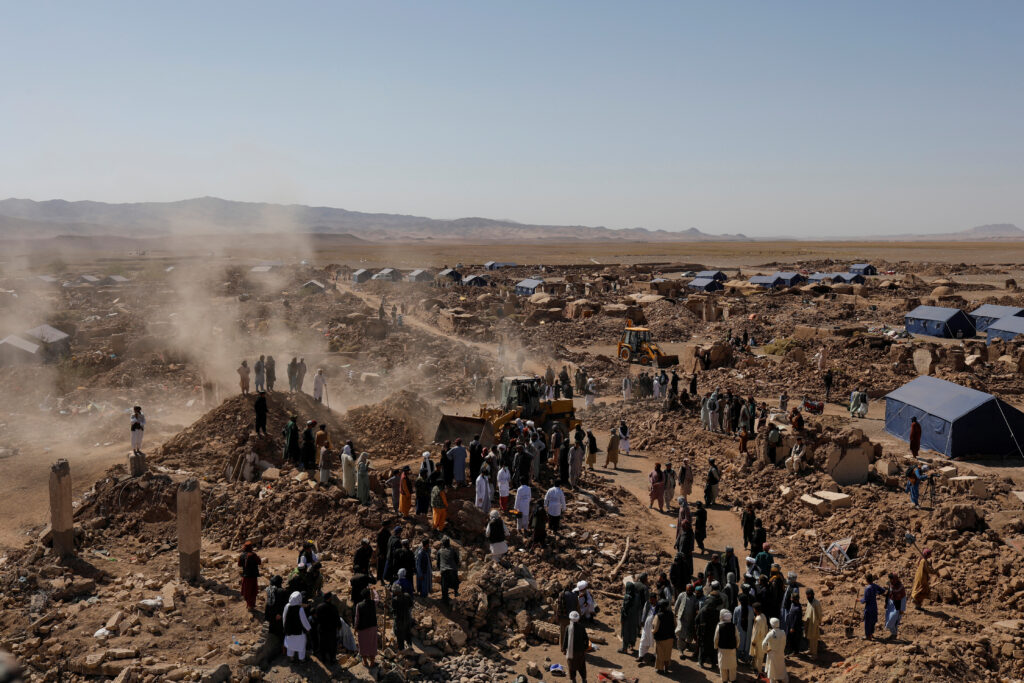Another earthquake hits western Afghanistan, losses ‘huge,’ says official

A general view of the quake-hit area in the district of Zinda Jan, in Herat, Afghanistan October 10, 2023. REUTERS/Ali Khara
KABUL, Afghanistan — A 6.3 magnitude earthquake struck Afghanistan’s western province of Herat on Wednesday, forcing authorities to redeploy relief and rescue teams already in the field following a series of deadly quakes on Saturday.
There were no early details on casualties caused by the latest quake, disaster management spokesman Janan Sayeeq told Reuters. Saturday’s tremors killed at least 2,400 people, the Taliban-run government said, making the quakes one of the deadliest in the world so far this year.
READ: Morocco earthquake: A look at the world’s deadliest temblors over the past 25 years
The office of Herat’s governor said in a statement that some districts adjoining areas that had been completely flattened by earlier quakes had suffered “huge losses”.
More than 2,000 were injured when the multiple earthquakes levelled thousands of homes northwest of the city of Herat days earlier.
“Mobile medical teams and officials have been working together and have transferred several injured people to hospital,” the governor’s office said.
READ: Morocco earthquake kills more than 2,000 people, survivors sleep outdoors
The German Research Center for Geosciences (GFZ) said the latest quake was magnitude 6.3, and occurred at a depth of 10 km (6.21 miles).
Hemmed in by mountains, Afghanistan has a history of strong earthquakes, many in the rugged Hindu Kush region bordering Pakistan.
Relief and rescue efforts after Saturday’s earthquakes have been hampered by infrastructure left crumbling by decades of war and a lack of foreign aid which once formed the backbone of the economy but which has dried up since the Taliban took over.
Afghanistan’s healthcare system, largely reliant on foreign aid, has also faced crippling cuts.
READ: Groundbreaking AI predicts 70% of earthquakes
Disclaimer: The comments uploaded on this site do not necessarily represent or reflect the views of management and owner of Cebudailynews. We reserve the right to exclude comments that we deem to be inconsistent with our editorial standards.
